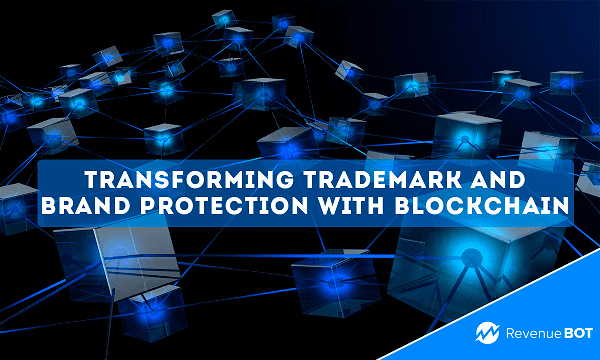
Brand protection sector holds a special place in the legal practice designed to protect a company’s unique trademarks, such as logos and corporate identities, from unlawful use by third parties.
What exactly is brand protection?
Trademarks are one-of-a-kind names or emblems used to identify a firm or brand and set it apart from competitors’ offerings. They play an vital role in building trust among consumers and provide brand recognition. Brand protection usually involves legal and tactical measures to preserve the uniqueness of trademarks and the reputation they stake. This includes cracking down on unauthorized use, dealing with counterfeiting and protecting brand rights.
There are numerous obstacles to overcome when it comes to protecting brands, so infringement and counterfeiting can severely undermine brand value and consumer trust. Things get more complex with the development of the Internet, since anonymous fraudsters operate online, breaching law on a global level. It requires careful planning and coordination to govern the global legal framework in order to curb cross-border violations.
In what way does blockchain enhance brand protection?
The latest trademark protection strategies embrace the use of state-of-the-art technologies such as digital watermarks and blockchain, as well as proactive enforcement and legal action. Trademark registration and compliance with intellectual property legislation remain key points here. Thanks to the groundbreaking authentication and tracking methods provided by modern technology, entities can swiftly detect and respond to breaches by reaching out to law enforcement.
Blockchain greatly enhances brand protection by providing transparency and automating licensing procedures. Blockchain-based anti-counterfeiting software allows to create unalterable documentation to prove the product’s legitimacy and provides a unique ID for each product, which helps combat fakes and strengthens brand reputation. In addition, with the transparency and traceability that blockchain offers, companies can effectively manage their supply chain and ensure the validity of their products.
Adoption of smart contracts also promotes brand protection by automating licensing and enforcement routines. Such kind of contracts allows brands to respond effectively to non-compliance and minimize manually conducted regulatory procedures, thus streamlining brand protection efforts and ensuring consistency in supply chains.
Perks of blockchain in trademark protection
In fact, there are many benefits to companies in adopting blockchain technology here, especially given potential NFT integration and metaverse development.
Immutability is a major benefit since blockchain creates an unmodifiable record of transactions. This means that trademark and brand records are kept intact, making it much more difficult for data to be tampered with. Such approach reduces the possibility of intellectual property theft and infringement by ensuring the authenticity and integrity of brand assets.
Additionally, public blockchains do not require intermediaries like centralized agencies or registries, which simplifies the trademark registration procedure and lowers administrative expenses. The abovementioned self-executing contracts can be programmed onto a blockchain to automate processes like royalty payments and licensing agreements, thereby ensuring compliance and diminishing the likelihood of disagreements.
What’s more, blockchain improves transparency by giving stakeholders real-time access to the ownership and usage history of trademarks. This enables them to confirm the validity of brands and monitor their use in various marketplaces.
At the same time, nonfungible tokens (NFTs) provide a distinctive digital representation of assets, allowing companies to tokenize their brands and verify ownership on the blockchain safely. This innovation improves brand identity protection by lowering the possibility of counterfeiting and unauthorized use.
What are the stumbling-blocks to adopting blockchain in this sector?
Notwithstanding its possible perks, a great variety of obstacles prevent blockchain from being widely used for brand protection.
To begin with, stakeholders do not fully comprehend blockchain technology or its uses in protecting trademarks. Businesses may then be reluctant to use blockchain since they consider it complicated or unfamiliar.
Moreover, it might be perplexing and pricey to integrate such technology with already existing systems. To apply blockchain efficiently, firms (smaller companies with tighter budgets, to be precise) might need to redesign their infrastructure and make considerable investments in new technology and knowledge, so this can be a major hurdle for them.
The implementation of blockchain in brand protection is further complicated by challenges related to scalability and interoperability. Blockchain networks may experience scalability problems as they expand, which could result in longer processing times for transactions and greater costs. To achieve seamless integration and data sharing, interoperability between various blockchain platforms and traditional systems also needs to be addressed.
Moreover, blockchain’s use for the industry in question is hampered by regulatory uncertainties and compliance issues. Strict laws pertaining to consumer protection, intellectual property rights and data privacy apply to many businesses. It can be back-breaking and time-consuming for businesses to negotiate various regulatory environments and make sure blockchain systems abide by applicable laws and standards.
Conclusion
To sum up, the introduction of blockchain and smart contracts in trademark protection will allow companies to advocate more effectively for their rights in matters relating to their brand. As of now, however, this is still one of the possible scenarios, even though very few companies resort to this way of operating.
